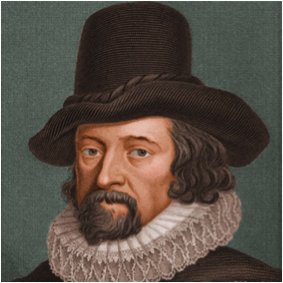The Power of Ancient Ideas – Christianity and the Environmental Crisis

Our habits and behaviours are not isolated acts, but built on a foundation of assumptions and beliefs –convictions about the world and our place within it. Just as our exercise routines reflect our belief in the connection between physical and mental health, some propose that our current fossil fuel industry reflects a modern-day belief in our metaphysical separation from our natural environment. No longer an ecological equal, it became psychologically and theologically unproblematic to justify the violent extraction of the earth’s resources.
By Dominic Stephen
In the Beginning, God Created the Heavens and the Earth.
Take the environment: in his 1966 lecture, The Historical Roots of Our Ecological Crisis, professor of mediaeval history Lynn White Jr. suggests that today’s ecological degradation is caused by behaviours inspired by an ancient Judeo-Christian worldview – a philosophy which sees the natural world as separate and inferior to humankind.
Christianity inherited from Judaism […] a striking story of creation. God had created Adam and, as an afterthought, Eve to keep man from being lonely. Man named all the animals, thus establishing his dominance over them. God planned all of this explicitly for man’s benefit and rule: no item in the physical creation had any purpose save to serve for man’s purposes.
According to White’s interpretation, this story of creation implies a separation between God as the creator, and the physical world as the created. This Christian myth presents the natural world as existing solely for the service of man – a dumb instrument, alien and vulnerable. This belief was then passed down a thousand generations, reinforced globally through European culture, colonialism, and rule.
This philosophical distance of man from his environment, Lynn-White continues, ‘made it possible to exploit nature in a mood of indifference to the feelings of natural objects.’ It is psychologically easier to prod, poke, explore and extract from our environment when we feel disconnected from it. No longer a neighbour equal to the natural world and its inhabitants, we became instead its Master and Explorer. From Francis Bacon and James Watt during the Scientific and Industrial Revolution, to the voyagers leading European colonialism, this Judeo-Christian perspective laid the ground for much of mainstream Western culture today.
The Patron Saint of the Extractive Economy

Francis Bacon
Journalist and activist Naomi Klein takes a similar line in her book This Changes Everything. ‘If the modern-day extractive economy has a patron saint’, she writes, ‘the honor should probably go to Francis Bacon. The English philosopher, scientist, and statesman is credited with convincing Britain’s elites to abandon […] pagan notions of the earth as a life-giving mother figure to whom we owe respect and reverence […] and accept the role as her dungeon master.’
She goes on, connecting religion, industrialism and environmental destruction through the words of priest William Derham in 1713: “We can, if need be, ransack the whole globe, penetrate into the bowels of the earth, descend to the bottom of the deep, travel to the farthest regions of this world, to acquire wealth.” Derham, a man of the Church, and feeling no relation with the natural world, saw the earth as nothing but a lifeless treasure chest to be plundered and excavated to meet his human ends.
Looking Backwards to Move Forwards
Today we know that we are not the masters of our environment that our European ancestors once believed. Far from being superior to nature, we are intimately intertwined with it, dependent on it to provide us with a stable and liveable ecological equilibrium. Our extraction, combustion and pollution are not isolated acts – they change our atmosphere, and ecosphere in ways subtle but widespread. We can now see clearly that our causes have effects, whether in the increasingly extreme and frequent hurricanes, droughts or flooding across the globe.
Lynn-White’s interpretation may not be immune to criticism; but nonetheless it is a humbling reminder of the power of ancient ideas to influence behaviour on a global scale. And if we can better know how our present has been driven by our past, then we can begin to channel a more sensible and sustainable path into our future.

You do know that the White Theseus has long been criticized? Recently for example by Martine Vonk. The connection is not as simple as you and White suggest. To give one example: in medieval Theology one can find ideas nowadays found in ecoactivist who argue to see animals as having a independent juridical personhood. Pope Francis in his Laudatio si also draws on very old theological ideas. One could just as well see the ideas you describe as Enlightenment ideas. The idea that animals are soulless machines to be exploited by humans is a typical Enlightenment idea. Bacon also is often portrayesd as an Enlightenment scholar.
[…] Also published here. […]